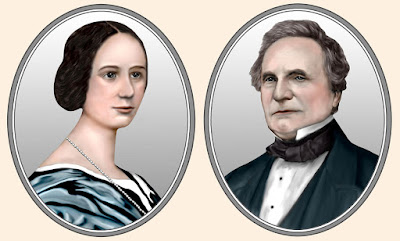The need for a computer is essential in today's world - Today (December 26, 1791) is Charles Babbage Birthday, the father of computers.

Charles Babbage
was born on December 26, 1791, in London, England. Charles Babbage is the son
of Benjamin Babbage and Betsy Plumley Deep. Charles Babbage's father worked as
a banker and businessman. Charles Babbage received most of his elementary
education from private teachers. He then joined Trinity University in
Cambridge, England in 1810, where he excelled in mathematics. There he
developed an obsession with mathematics. He knew more about mathematics than
his instructor. In 1814 he married Georgiana Whitmore, the same year that
Charles Babbage graduated from Cambridge.

After graduating
from Charles Babbage, he lectured on astronomy at a government institution and
in 1816 was elected a member of the Government Society. He is a mathematician,
inventor, analytical philosopher and mechanical engineer. He was a lecturer in
mathematics at the University of Cambridge. At the time, he could not bear to
see so many errors in math lessons. Intended to create a tool to correct
errors. That is why in mathematics, he solved the Differential Equations and
invented the automatic calculator in 1822. Also in 1882 Charles Babbage developed
a machine called the Difference Engine, a differential engine that could solve
differential problems. This is the basic premise of today's computer.


After working for ten years in a differential engine, in 1834, Charles developed the first computer, the Analytical Engine, which combined mathematics and machine. The astonishing fact is that the initial form of the computer was a large number of machines stuffed into a very large room. With him, Ada Lovelace, the daughter of the English poet Byrne, created a program with orders to help with design. Ada became the world's first computer programmer. This program was able to solve 60 types of math related problems per minute. Its advantage is that this machine looks like a modern computer. Although this feat was performed many years ago, it was not until 1948 that it was officially accepted by all. Then the transistor was invented and the vacuum tube (Vacuum Tube) was replaced and second generation computers were developed.

He also invented
the speedometer of vehicles, the eye tester, the train's dynamometer, the
uniform postage system, the lighthouse, the scratch line, the sunscreen, the
wristwatch, the Napier machine, the Pascal machine, and the difference machine.
He needed a huge room to keep the computer he invented. Its weight is one
thousand kilos. The speed of the computer is very low. However, the current
memory of ordinary computers is 10 lakh times more than the memory of that
first computer. What makes us travel in the modern world today is that every
vision we use makes us think of their vision when they were created at the
beginning of that era.


The father of
computers, Charles Babbage, died in London on October 18, 1871, at the age of
79. His brain is still preserved in the Hunterian Museum in the UK. In today's
world the need for computer has become an essential one. It has become
necessary for everyone to realize the usefulness of computer. Charles Babbage
was the first to invent such a computer.
Source By:
Wikipedia
Information: Dr. P. Ramesh, Assistant Professor of Physics, Nehru Memorial College, Puthanampatti.
Get information like this
https://t.me/joinchat/jpqj3jQLN51kYTk9
Join Telegram Group.
https://chat.whatsapp.com/HHC5m0Jz3Ue1E8ilgta0YT
Join WhatsApp Group
Thanks.
Also, Read
🛑👍 CSIR-NET Physics Materials and Problems
🛑📕 21 GB and Hundreds of Physics E-Books Collection.
🛑🛥️ How does an Electric Motor work? (DC Motor).
🛑🤹♂️ Science Academies' Summer Research Fellowship Programme for Students and Teachers 2022.
🛑🔌 How does a Transformer work - Working Principle electrical engineering.
🛑🎙️ Transistors Explained - How transistors work.
🛑🔥⚡ How Thermocouples Work - basic working principle.
🛑🔌 Voltage Explained - What is Voltage? Basic electricity potential difference
🛑🔌 What is CURRENT– electric current explained, electricity basics.


.png)
.jpg)
No comments:
Post a Comment